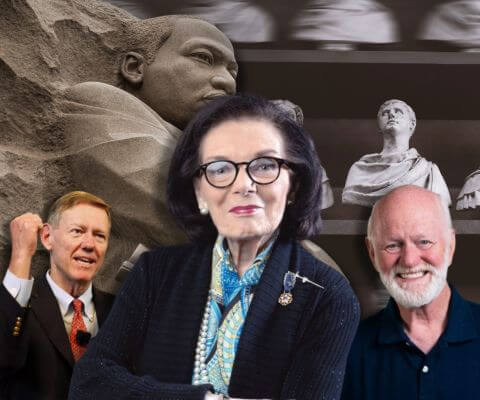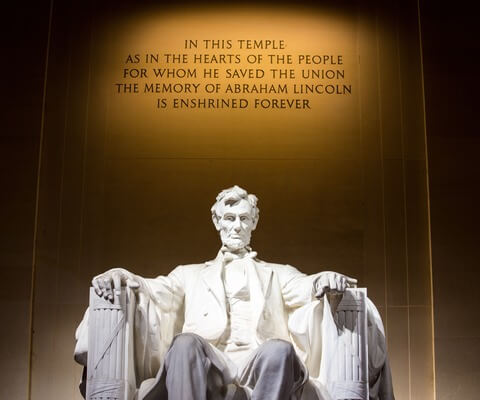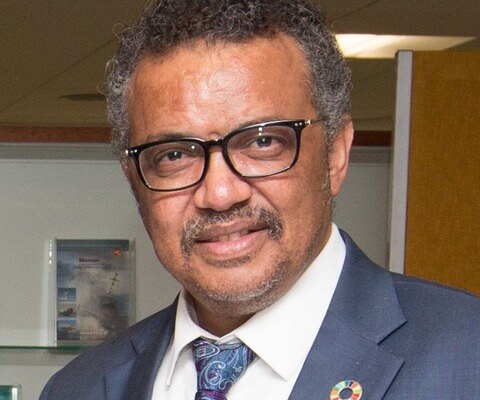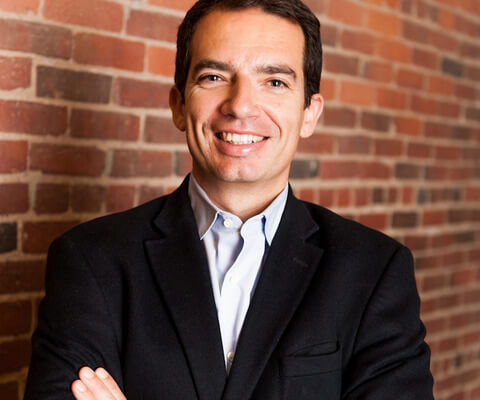- 15 Global Companies Launch Trusted Tech Alliance for Secure Digital Infrastructure
- Singapore Management University Launches Business AI Master’s Programme
- Cochin Shipyard Seeks Global Partners to Expand International Ship Repair Footprint
- OpenText Names Former IBM Americas President Ayman Antoun as CEO
- Fintech Company Network International Appoints Ashish Jain as Group CFO
Tag: leadership
Written By Contributing Writers Vishal Gupta, Professor, IIM Ahmedabad And Shishir Arya, Founder, MyHeal Consulting
The age of today is characterised by turbulent times. Recently, New Zealand Prime Minister Jacinda Ardern quit from her job saying she no longer had “enough in the tank” to lead. She announced her retirement and distancing from the high-profile leadership position citing burnout issues. Deloitte, in its annual mental health report published in 2022 based on a survey of 3,599 part- or full-time employees, reported that 28 per cent employees had either left their jobs or were planning to leave their job by 2022, with the majority citing mental health issues for leaving.
In today’s day and time of drastic changes and the disruptions brought around by technology, leaders are at the receiving end of multiple demands and challenges in their jobs. The American Psychological Association (APA) defines burnout as a feeling that “results from performing at a high level until stress and tension, especially from extreme and prolonged physical or mental exertion or an overburdening workload, take their toll”. The World Health Organisation has included burnout in its international classification of diseases and has defined it as an “occupational phenomenon”.
Based on my research work and teaching professionals at various life stages, I have realised the following two truths about leadership:
- The ability to lead is something that is a scarce resource and is not as widely available as we would believe. Mediocrity is the norm, not excellence. Excuses are most readily available, not ownership.
- Individuals who have the potential to lead are surrounded by people who are adept at making excuses, rather than solving problems. Individuals in leadership positions are at a constant risk of being battered and bruised by such problem-givers.
If such is the case, how can leaders sustain their energy for long, continue in their leadership positions and limit the potential of becoming burnt out. Such individuals need to develop the capacity to recover and rejuvenate themselves constantly. They need to develop the capacity to HEAL themselves – a capacity that is built on three pillars, health (H), emotions (E) and Authentic Living (AL).
H (Health) – ‘H’ of HEAL stands for health. While we usually understand physical health when talk about health, research and practice alike are realising the importance of ‘mental health’ today and the strong linkages that exist between the body and our mind. A recent study by scientists at the Washington University School of Medicine at St. Louis has shown that parts of our brain that control body movements are “plugged into networks involved in thinking and planning, and in control of involuntary bodily functions such as blood pressure and heartbeat.” The finding show that there exists an extremely strong mind-body connecting and calming the body, may also calm the mind, and vice-versa.
As leaders, it therefore becomes extremely important to focus on their mental health and resilience. Focusing on mental health and practicing various exercises such as meditation, yoga or sports can help calm our mind as well as the body. For leaders, it is important to not just be physically fit but also be able to recharge themselves by calming their mind and body. Numerous research studies today show that meditation can slow down the ageing process. And, other techniques such as yoga, mindful breathing and other such practices can also help.
E (Emotions) – ‘E’ of HEAL stands for emotions. This aspect concerns with our ability to manage emotions (both negative emotions as well as positive emotions) and not become swayed by them. Emotions arise from a part of our brain called the ‘amygdala’ that is not in our conscious control. Every emotion comes with a pre-conditioned and learn response. For example, anger comes with the response of fight. Fear comes with its learnt response of flight or freeze. And envy comes with its conditioned response of criticism and self-attack.
As individuals who are in positions of authority, we need to learn to manage the emotions in our life. The stress that we feel due to the negative emotions such as anger, fear, guilt, shame, sadness or envy can interfere with our ability to do things that we want to do. Similarly, positive emotions such as joy, ecstasy, may also need to be managed as they can motivate us to act without thinking. The signs of poor emotional health could be physical, mental or behavioural. Feeling tired or depressed, gaining weight, change in eating and sleeping habits, acting without thinking, are just a few physical signs. Feeling overwhelmed, trouble keeping track of things, using drugs or alcohol are few mental and behavioural signs of poor emotional health.
Emotional intelligence is used today a lot in leadership coaching and development circles. To us, we define emotional intelligence simply as ‘adding some intelligence to the emotions’ and ‘think about the actions you are going to perform’. Cognitive reappraisal of emotions and coming out of the negative thinking and feeling patterns is extremely important and a crucial element of our HEAL.
AL (Authentic Living) – ‘AL’ of HEAL stands for ‘authentic living’. Mark Twain once remarked: “man is born twice: first, the day we were born; second, the day we find out why’. ‘Authentic Living’ means the ability to live according to our value and purpose. AL is about doing things that we truly love and value in our lives. Having ‘meaning’ and ‘purpose’ is an extremely important driver of us humans. We are passionate beings and we love doings things that we are passionate about. Living authentically can be achieved in two ways: first, doing the things we love, or second, loving things that we do. Research shows that both ways lead to the same motivational effects and engender similar energies.
Leaders who live authentically are able to do things that they truly value – be it at work, or in their personal lives. If they are unable to do things that they value, they make an effort in finding a purpose or meaning in the work that they are doing. Asking the question of what is the impact of what I do, how does my work help others and how does it help create surplus for people around me could be some good questions to start with.
Authentic living is extremely important for leaders as only when we find the value and meaning in what we do can we find the strength to withstand the troubles, challenges and pains that come our way.
Health, emotions and authentic living together form the new-age capability of HEAL for leaders. Only we can heal ourselves and only when we are able to heal ourselves will we be able to lead well and be truly happy. Rabindra Nath Tagore, very rightly said:
“When I stand before thee at the day’s end, thou shalt see my scars and know that I had my wounds and also my healing.”
About the Authors:
Vishal Gupta is the Chief Faculty Advisor of the HEAL Consulting Group, a startup working towards providing mindfulness-based interventions to individuals as well as organisations. He is a Professor in the Organizational Behavior Area at the IIM Ahmedabad. He has written 2 books and over 60 peer-reviewed publications (case studies, research papers, book chapters and technical notes) in the domains of leadership, organisational development, mindfulness, emotional intelligence, and innovation management. His research has been published in international and national journals of repute and has been covered by national dailies.
Shishir Arya is the Director, Program Design and Training of the HEAL Consulting Group, a startup working towards providing mindfulness-based interventions to individuals as well as organisations. He also serves as the Director of Global Mindfulness Teacher Training Program with Imagine Mindfulness (a registered worldwide non-profit) and a visiting faculty for Mindfulness with leading business schools in India. Using the evidence-based HEAL framework, Shishir has also delivered several customized wellness programs for government institutions and corporations worldwide.
In a world plagued by growing intolerance and conflicts, it becomes imperative for us to examine the root causes of such issues and seek practical solutions. This article aims to shed light on the need...
Emma Walmsley is a prominent figure in the pharmaceutical industry, having made history as the first woman to become CEO of a major pharmaceutical company. She assumed the role of CEO of GlaxoSmithKline...
“Leadership flows from inner character and integrity of ambition, which inspires others to lend themselves to your organization’s mission.” aptly articulated by Frances Hesselbein....
Written by contributing writer, David García González, Founder, GoLocalise As is likely to be the case for many businesses, this continuing constant uncertainty means persuading our clients to...
Written by Contributing Writer, Will Polston. In Thailand, people have devised a simple way to control an elephant. When the elephant is a baby, they tie it to a mature tree using a thick rope. Being a...
Written by contributing writer, Tom Williams, Principal, Innovation Consult. If you want to move past the business stage gates and bust through your growth ceilings, it could be said that you have one...
In today’s fast-paced business world, it’s not enough for leaders to focus solely on achieving specific goals. They must also have a clear purpose that guides their decisions and actions....
Dr Tedros Adhanom Ghebreyesus was elected WHO Director-General for a five-year term by the WHO Member States at the Seventieth World Health Assembly in May 2017. In doing so, he was the first WHO...
Stéphane Bancel is a highly accomplished CEO and visionary leader who currently heads Cambridge, Massachusetts-based biotech firm Moderna. With his outstanding executive acumen, he has transformed...
















